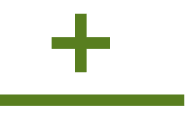Modular process plant design offers an innovative alternative to traditional stick-built construction, focusing on prefabricated process units. Learn more.Modular process plant design offers an innovative alternative to traditional stick-built construction by focusing on pre-fabricated, self-contained process units. These integrated modular process units, encased in steel-reinforced structures (skids), house electrical systems, instrumentation, piping, and valves. They can be designed to function as standalone units or as combined, complete operational systems capable of transforming raw materials into final products.
Modular Process Plant Design: Brief Introduction
The modular process plant design approach requires a comprehensive understanding of various engineering disciplines, including chemical, mechanical, electrical, and civil engineering. It involves detailed planning to address regulatory requirements, facility layout, and selecting necessary equipment, components, and materials—ensuring each module fulfills its role in transforming raw materials into finished products.
A successful modular plant design will involve a well-defined scope and consideration of design limitations or constraints. The process begins with a rigorous front-end planning phase, including conceptual planning, constructability assessments, feasibility studies, and comprehensive engineering plans. Following these stages, material procurement and off-site fabrication of fully functional process units are completed, followed by a transportation, installation, and commissioning phase.
Front-End Planning and Modular Design
Front-end planning is fundamental to modular design, as it sets the project objectives, scope, and requirements early in the development process. This phase incorporates 3D modeling tools, which allow for layout optimization, which is critical for modular process system integration and functionality.
In modular plants, each unit is encased within a steel-reinforced skid, designed and fabricated to precise specifications. This process often requires process simulation, cost estimating, equipment sizing, safety studies, and the early procurement of essential materials and components needed to complete the project.
3D Laser Modeling
As previously mentioned, 3D modeling can play an important role in the design, fabrication, and integration of modular process units. When combined with a point cloud laser scan of existing conditions, precision and accuracy of the constructed product is improved significantly. This process enables engineers to visualize and refine a process plant’s layout from individual modular units to complex, integrated systems well before fabrication begins.
During 3D laser modeling, design teams can evaluate design options, identify potential issues, and improve the arrangement of equipment, piping, and components within each modular unit.
.jpeg)
Modular Process System Integration
Modular process plant design frequently involves fabricating and integrating individual process units to form a fully operational process plant. Understanding the function of each process unit and the alignment of mechanical, electrical, and automation systems will be required for effective integration.
It will be necessary to consider the interactions and dependencies between modules. This process will involve further customizing process units capable of performing various functions and optimizing their control and coordination.
Transportation, Installation, and Commissioning
While transportation, installation, and commissioning of modular process units are typically completed at the end of a capital project, these phases should be considered during the modular process plant design phase. Skid-built modular process units are designed to be durable and portable. However, there may be additional variables to consider, such as environmental and facility conditions, in order to fully streamline and optimize the design of modular process units.
Partner With H+M Modular
The modular process plant design approach can offer significant benefits in terms of project control, safety and quality, reduced project timelines, and cost control. However, working with a contractor with established experience producing modular process units across industries and applications will be critical in ensuring project success.
H+M’s modular group specializes in designing and fabricating truckable modules, providing exceptional capital project execution from concept to start-up for clients across the United States. From our engineering and fabrication headquarters in Houston, Texas, we can transport your project to wherever you are. For over three decades, we have provided end-to-end solutions for a wide range of project sizes within the energy, chemical, terminals, and logistics industries.
We are dedicated to providing trust, experience, and efficiency through all stages of engineering, procurement, and construction through our proven strategic EPC approach. Our comprehensive services, including front-end planning, detail engineering and design, procurement, fabrication, and construction, allow us to take your modular process plant project from conception to completion, tailoring engineering and design solutions to meet your unique needs.

The H+M Industrial Team
For over three decades, we have provided best-in-class capital project management services to Energy and Chemical industries through our proven EPC approach. We are dedicated to providing trust, experience, and efficiency through all stages of engineering, procurement, and construction--on budget and on time.

Partnering with H+M Modular
H+M Modular, a division of H+M Industrial EPC, specializes in custom fabricated equipment, modules, and skids for energy and chemical industries. The approach emphasizes the potential for decreased risk through more controlled fabrication, leading to enhanced quality and safety, reduced labor costs and construction times, improved labor availability, and solutions to geographic challenges. We are dedicated to providing trust, experience, and efficiency through all stages of traditional and modular construction projects using our proven EPFC approach, If you're considering modular fabrication, we invite you to connect with us to learn about how modular solutions can improve project outcomes.





